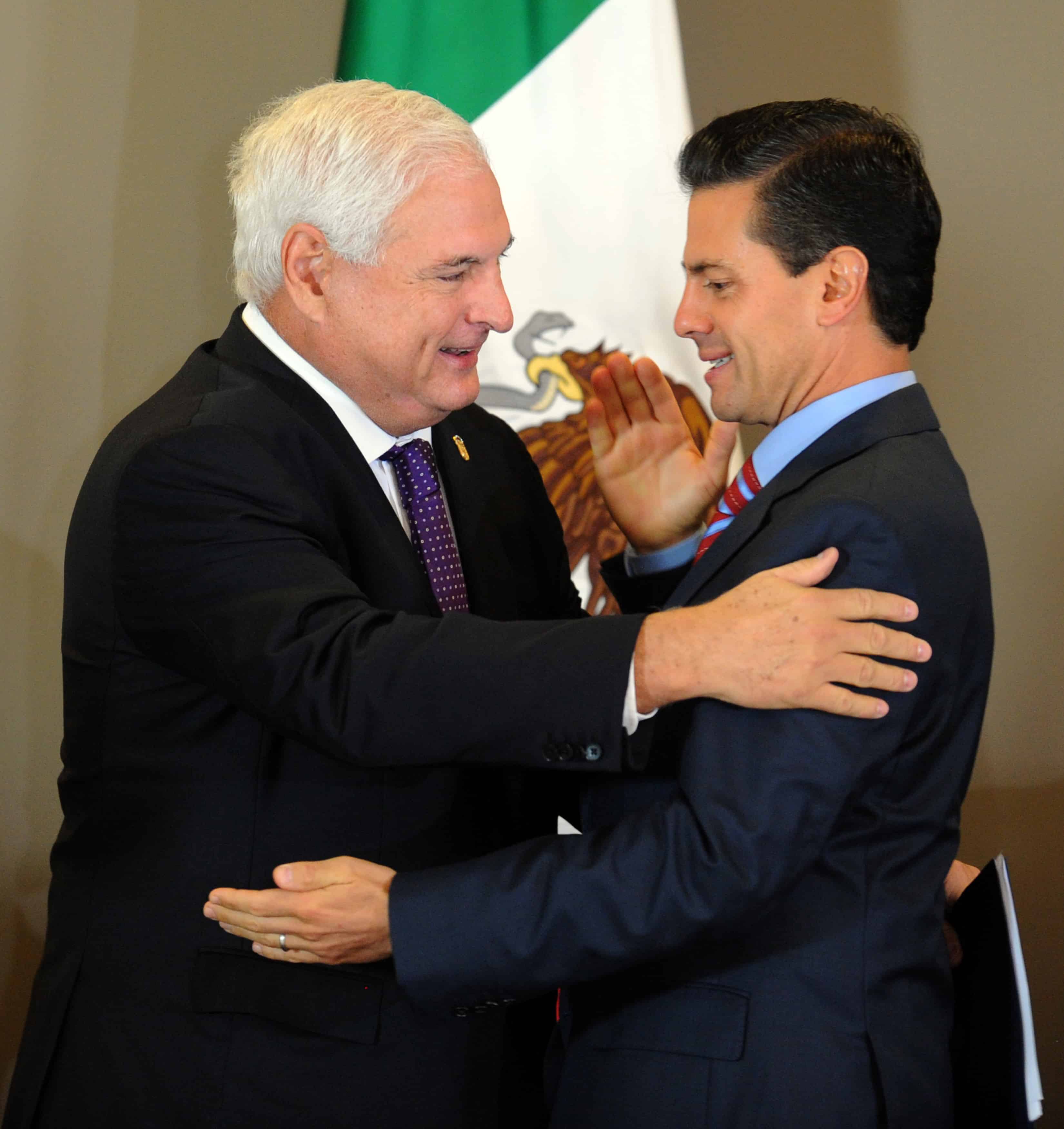When anti-corruption protests and dedicated prosecutors helped chase Guatemalan President Otto Pérez Molina from power and then into prison last week, many Latin Americans nodded in approval, and not a few in envy.
Barely a news cycle passes in the region without some cabal of political chiefs and cronies getting caught with their hands in the public till. A recent report by Global Financial Integrity pegged Latin America for nearly a fifth of the yearly global outflows of illicit funds, worth 3.3 percent of regional GDP, from 2003 to 2012.
And yet bringing Latin American political leaders to justice for graft, kickbacks and payola is rare, and locking them up is almost unheard of.
Mexico knows that all too well. Cronyism and a culture of impunity, typically papered over by shabby investigation, allow dodgy dealings to flourish in the highest offices. Little wonder Mexico consistently polls as one of the dirtiest countries in Latin America, placing a lowly 103 out of 175 countries on Transparency International’s latest corruption perception index – slightly above Guatemala, 82 rungs below Chile and 34 below Brazil.
In 2013, nine out of 10 Mexicans told Transparency International that police were corrupt or extremely corrupt, while 80 percent dismissed the country’s judiciary as crooked.
In his state of the union address last week, President Enrique Peña Nieto acknowledged that a series of scandals have “hurt the spirit of the Mexican people and their trust in public institutions.” The souring mood follows a reversal of fortune for Mexico’s economy, hit by sagging oil prices and the plunging peso, down 20 percent from a year ago.
Made in Mexico
Yet most of Peña Nieto’s worst woes are made in Mexico. Start with the case of 43 missing Mexican students from a teachers college in the southern state of Guerrero, whose disappearance and presumed murder a year ago have yet to be accounted for.
On Sept. 6, the Inter-American Commission on Human Rights flatly contradicted the government investigation into the Guerrero tragedy, which concluded that the students were kidnapped and executed by drug traffickers in cahoots with corrupt local politicians, who then burned the bodies in a municipal landfill before dumping the remains in a river.
A Mexican human rights commission had rejected the government version out of hand in July. Independent experts, after a six-month inquiry, have pointed to serious flaws in the official report, stating it would be “scientifically impossible” to build a pyre big enough to incinerate so many bodies in such a confined space.
More damningly, the international panel also noted that regular army troops and federal security agents were aware of the danger to the students, and yet not only failed to stop the attack but inexplicably lapsed into radio silence at the time of the crime. Mexico’s attorney general, Arely Gómez, has reopened the case.
Mexicans were already shaken by the brazen escape last July of Joaquín “El Chapo” Guzmán, the country’s most infamous drug dealer, who fled a maximum security prison through a mile-long tunnel, most likely with a nod and wink from bent officials.
Then there’s the dangerous predilection of Peña Nieto’s family and friends for buying luxury properties on murky terms from favored government contractors.
For months now, Mexicans have been following the tale of finance minister Luis Videgaray’s vacation home at an exclusive golf course which he bought in 2012 from a company controlled by Juan Armando Hinojosa, a major contractor who later signed some 22 public works contracts with the Peña Nieto government.
Then Peña Nieto found himself firing off disclaimers about two other questionable property deals. One: A grand home his wife, Angelica Rivera, purchased from the same contractor, later returned after the media made a stink. The other: Peña Nieto’s own luxury mansion, purchased back in 2005, when he was governor of Mexico State, from a company that suddenly prospered once he was elected president.
And yet it surprised no one that the official probe by public comptroller Virgilio Andrade Martínez – who was appointed by Peña Nieto and claims “a permanent bond” to his dear friend Videgaray since 1987 – cleared all parties of any wrongdoing.
The rest of the country isn’t convinced. A recent Pew Center survey found that only 27 percent of Mexicans approved of the way Peña Nieto has handled corruption. Even if the other 73 percent believe Peña Nieto to be part of the problem, they know what happens to crooked authorities in Latin America: not much.
Bloomberg View contributor Mac Margolis is based in Rio de Janeiro. For more columns from Bloomberg View, visit http://www.bloomberg.com/view
© 2015, Bloomberg View






